Fasting has been shown to improve body composition, boost energy, regulate appetite, support the gut, brain, heart, and immune system, and contribute to anti-aging and longevity [1-7].
Not bad, eh?
And it appears to be simple—all you have to do is go without food, or certain types of food, for a given time, and all those health benefits can be yours.
While the concept is simple, there’s still so much conflicting information about everything from how to fast, to perhaps the most common source of confusion: what breaks a fast?
Can you still drink coffee or tea or take supplements? Or do these things undermine your efforts and limit the benefits of fasting?
This article covers the most common fast-breakers to avoid and a list of the foods, drinks, supplements (and more) that are fasting-friendly.
While this article can be considered a “cheat sheet,” we also want to teach you the basic guidelines of what breaks a fast so you can navigate your fasting journey with confidence.
But first, a confession: There aren’t enough human studies yet to have definitive, science-backed answers to the question of what breaks a fast. To help you navigate your fast, we’ve developed educated guidelines based on the available research and our understanding of fasting physiology.
And now that we’ve gotten that off our plate (pun intended), let's talk about what breaks a fast.
PS: Skip to the bottom of this post for The “What Breaks a Fast?” Cheat Sheet.
Caution: Fasting is not for everyone, especially those who are pregnant or breastfeeding, under the age of 18, or have diabetes, low blood pressure, or a history of eating disorders. Please consult your doctor before starting a fasting practice.
What Breaks a Fast?
Whether or not something ‘breaks a fast’ ultimately depends on three things:
- Your fasting goals
- The type of fast you’re doing, and
- If that thing fits within the guidelines of your chosen fast
What does it mean to “fit within the guidelines?” Let’s get nerdy to find out.
The benefits of fasting typically come from specific processes in your body being deactivated or “dialed down” while others get activated or “dialed up.”
For example, if you’re fasting for longevity, you want to activate autophagy by shutting off specific nutrient-sensing pathways. (More on this below.)
So when it comes to any substance, what you’re really asking is: Does it activate the processes you want to be turned off during your fast? If yes, then that thing might “break your fast,” and you should avoid it until your fast is over. If not, you’re good.
There are many different fasting methods, each with its own unique benefits.
To keep things simple, this article will cover three of the most common types of fast, guidelines, and what "breaks" each one.
The Three Most Common Fasting Goals and Methods
In this article, we discussed various ways to practice fasting and why there is no “best fast” for everyone. However, some fasting methods can help achieve certain benefits more efficiently than others.
Most people fast to improve one, or a combination of, the following:
- Longevity
- Body composition
- General gut health
Based on the research, we believe the best fast for...
- Longevity is the non-caloric liquid fast (NCLF): Consuming only zero-calorie liquids.
- Body composition is intermittent fasting (IF): Fasting for 12-22 hours.
- Gut health is the caloric liquid fast (CLF): Consuming calories only from gut-friendly such as bone broth or smoothies.
Defining your fasting goal and chosen fasting method is the first step. However, to figure out what breaks a fast, it helps to understand the guidelines of each fasting method.
Guidelines for the Three Most Common Fasting Methods
Method 1: Non-Caloric Liquid Fast (NCLF) for Longevity
During an NCLF, only non-caloric beverages like water, black coffee, and tea are consumed. NCLF can be practiced anywhere between 24 hours and several days.
The objective of an NCLF for longevity is to activate autophagy.
Autophagy is a repair process where cells cleanse themselves by removing old and damaged proteins, replacing them with new ones, and optimizing their function. This process has been associated with anti-aging and longevity because it keeps cells young, healthy, and functioning optimally [7].
The nutrient deprivation you experience during an NCLF is what activates autophagy.
When you restrict your calories for long enough, you signal to the body that it needs to switch from “growth mode” to “preservation mode.”
The Greek origin of autophagy is auto (self) and phagein (to eat). And, while it sounds weird, “eating yourself” is what happens in the absence of nutrients—old, damaged, and unnecessary cell parts are replaced or recycled.
Anything that stimulates mTor, switching the body into “growth mode” will turn autophagy off. The nutrients that flip that switch the fastest are proteins (amino acids) and substances that elevate blood sugar.
(Caveat: It is possible to still consume food and activate autophagy at the same time. Dr. Valter Longo demonstrated this concept in his research and went on to develop the Fasting Mimicking Diet (FMD) with his prepacked meal plan ProLon. However, for most of us, it’s easier (and cheaper) to just go without food for a few days.)
To know if something breaks an NCLF, you need to find out if it has calories. If yes, then it breaks your fast.
This is the main reason why we prefer NCLF for longevity—it’s a relatively simple and straightforward way to activate autophagy.
Method 2: Intermittent Fasting (IF) for Body Composition
Intermittent Fasting (IF) involves fasting for 12 to 22 hours between one day’s final meal and the following day’s first. Some people fast for 16-22 hours every day, while others do better cycling IF every other day or seasonally.
The objective of intermittent fasting for body composition is to switch your metabolism into fat-burning mode, which gets activated when insulin levels remain low.
When you eat, the amount of glucose in your blood (blood sugar) will rise. In response, your pancreas releases insulin, which facilitates the uptake of blood sugar into fat cells.
Insulin also inhibits your body’s ability to use fat as fuel. When insulin levels are high, the body stores glucose as fat while simultaneously shutting down the body’s ability to burn fat. When the glucose runs out, you dip into your fat stores for energy.
This is the targeted mechanism of intermittent fasting for body composition. Fasting allows you to burn through your body’s glucose and utilize stored fat as fuel.
For something to break an intermittent fast, it needs to elevate blood glucose and insulin levels enough to switch your primary fuel source from fat back to glucose.
As a general rule of thumb, anything with carbohydrates, sugars, or more than 10 calories will likely spike blood glucose and insulin and break your intermittent fast.
Note that there are certain nutrients like MCT oil, butter, and ghee that technically break an intermittent fast, but don’t have a large effect on blood glucose and insulin. In other words, consuming them doesn’t necessarily take you out of fat-burning mode.
The truth is, intermittent fasting is just one of many tools at your disposal when it comes to improving body composition. Read this article to learn how to balance blood sugar levels for weight loss without intermittent fasting.
Method 3: Caloric Liquid Fast (CLF) for Gut Health
A CLF involves consuming only low-calorie liquids such as bone broth, fatty coffee, low sugar green juice, or smoothies, in addition to non-caloric beverages like water, coffee, and tea. This type of fasting can typically be done safely for anywhere between 24 hours and several days, although 3-5 days are most common.
There are three objectives of a CLF:
- Strengthen the gut wall
- Balance the gut microbiome
- Allow the gut to rest while reducing intestinal inflammation
Liquid nutrients are easy to digest because they are already broken down. When you exclusively consume liquid nutrition, you give your digestive system a vacation, allowing it to recover from the insults of your normal diet.
This results in a general reduction of intestinal inflammation and the strengthening of your gut wall. Since liquid nutrients are mostly absorbed before they reach the intestines, a CLF starves the harmful gut bacteria that are prone to overgrowth, thus supporting an optimal bacterial balance [8].
Substances that break a CLF include:
-
Solid foods that fully activate the digestive system
- Pro-inflammatory compounds that irritate the gut lining and contribute to bacterial overgrowth, including gluten, vegetable oils, artificial sweeteners, sugars, and refined carbohydrates
Alright, enough theory! Now it’s time for more straightforward answers to the question of “what breaks a fast?”
The “What Breaks a Fast?” Cheat Sheet
Will Zero-Calorie Beverages Break a Fast?
Coffee
Does black coffee break a fast? It’s an important question that we’ve dedicated an entire article to.
But for the sake of this article, here are the cliff notes: black coffee is calorie-free, doesn’t spike blood sugar, and is gentle on the gut so long as it doesn’t cause gastrointestinal distress.
For Longevity: No
For Body Composition: No
For Gut Health: No
Not only can you drink black coffee without breaking your fast, but doing so may actually enhance the benefits. Read our article on coffee and fasting to learn more.
Tea
Tea is like coffee: it’s packed with nutrients, but by itself, is free of calories, has little to no effect on blood sugar, and doesn’t contain anything from the “no-go” list for the gut.
For Longevity: No
For Body Composition: No
For Gut Health: No
Sparkling Water
Sparkling water is water infused with carbon dioxide gas. Without any additives, sparkling water is calorie-free, has no effect on blood sugar, is appetite-satiating, and has been shown to benefit digestive health and relieve constipation [9][10].
For Longevity: No
For Body Composition: No
For Gut Health: No
Will Healthy Fats and Creamers Break a Fast?
MCT Oil
Despite having a relatively small effect on blood glucose, MCT oil is calorie-dense, so it breaks a fast for longevity and body composition. However, it’s easy to digest, may help balance the gut microbiome, and supports the gut lining, so it’s fine if fasting for gut health [11].
For Longevity: Yes
For Body Composition: Yes
For Gut Health: No
Butter
Butter is made from the fat and protein of milk or cream and is high in calories. Butter is solid when refrigerated but softens into a liquid at room temperature or during digestion and contains butyrate, a type of fat that may reduce intestinal inflammation [12][13]. However, butter from cows raised with antibiotics can adversely affect the gut microbiome, so opt for organic.
For Longevity: Yes
For Body Composition: Yes
For Gut Health: No, unless it’s from conventional dairy (antibiotics) or you’re lactose intolerant or allergic to dairy.
Cream and Milk
Cream and milk contain fewer calories than butter but more carbohydrates and sugars, which can cause a larger spike in blood glucose and insulin. Like butter, cream and milk contain butyrate, which is beneficial to the gut. But cream and milk from cows raised with antibiotics can offset the upsides for the gut microbiome, so opt for organic.
For Longevity: Yes
For Body Composition: Yes
For Gut Health: No, unless it’s from conventional dairy (antibiotics) or you’re lactose intolerant or allergic to dairy.
Will Sweeteners Break a Fast?
Sugar and Sugar-Containing Sweeteners
Cane sugar, honey, agave, and maple syrup are the most common sugar-containing sweeteners, all of which contain varying amounts of calories and can easily elevate blood glucose and insulin. Additionally, sugar-containing sweeteners are high in sucrose, which can be detrimental to the gut microbiome and contribute to inflammation [14].
For Longevity: Yes
For Body Composition: Yes
For Gut Health: Yes
Natural Zero-Calorie Sweeteners
The two most popular zero-calorie natural sweeteners are stevia and monk fruit. Both are calorie-free, have a marginal effect on blood sugar, and are gentle on the gut [15].
For Longevity: No
For Body Composition: No
For Gut Health: No
Artificial Zero-Calorie Sweeteners
Artificial sweeteners are zero-calorie chemical food additives like Splenda (sucralose), Equal (aspartame), and Sweet 'n Low (saccharin). Although they’re calorie-free, their individual chemical composition may have differing effects on autophagy, blood sugar and insulin, and the gut.
For Longevity: Probably. Equal (aspartame) will break an NCLF for longevity because it is made from amino acids that inhibit autophagy. For other artificial sweeteners, we don’t yet have enough research on their effects for longevity, so it’s best to avoid them.
For Body Composition: It depends. Most artificial sweeteners don’t have a large single-dose effect on blood sugar and insulin, so technically, they don’t break an intermittent fast for body composition. However, regular long-term use has been shown to negatively impact glucose metabolism [16][17]. For this reason, we only recommend natural zero-calorie natural sweeteners for those who regularly intermittent fast.
For Gut Health: Yes. Most artificial sweeteners have an adverse effect on the gut microbiome.
Will Gum Break a Fast?
Whether or not gum breaks a fast depends on the type of gum: the ingredients, sweetener, number of calories per serving, and the number of pieces you consume.
For Longevity: It depends. If the gum has any calories, it will break an NCLF.
For Body Composition: It depends. Check the sweetener, number of calories, and sugar content. A sugar-free, low-calorie gum without artificial sweetener will not break your intermittent fast (unless you chew enough to exceed 10 calories).
For Gut Health: It depends. If it has sugar or artificial sweetener, it will break a caloric liquid fast for gut health.
Will Apple Cider Vinegar Break a Fast?
Apple cider vinegar contains a small number of calories (approximately 3 calories per tablespoon), but has no sugar and a negligible amount of carbohydrates. It appears to have a neutral effect on the gut, although when taken prior to eating, may aid in digestion and blood sugar regulation.
For Longevity: Yes
For Body Composition: Not in small amounts
For Gut Health: No
Will Lemon Juice Break a Fast?
Lemon juice, like other fruit juices, has calories, sugars, and carbohydrates. Servings greater than 1 oz. have more than 10 calories, and may spike blood glucose. However, when it comes to the gut, drinking lemon juice with water can aid digestion and serve as a laxative.
For Longevity: Yes
For Body Composition: Not in small amounts
For Gut Health: No
Will Bone Broth Break a Fast?
Although the nutritional content can vary, it’s a moderate-calorie, high-protein beverage with varying amounts of fat and carbohydrates, which means it “breaks a fast” for longevity and body composition. For gut health, the gelatin and amino acids in bone broth may support healthy digestion and can enhance the benefits of a CLF.
For Longevity: Yes
For Body Composition: Yes
For Gut Health: No
Will Supplements Break a Fast?
There is no universal answer for every supplement across all fasts. It's best to cross-check the supplement’s ingredients and fillers with the fasting guidelines above. Also, take into consideration if the supplement is water-soluble and can be taken on an empty stomach, or fat-soluble and should be taken with food.
For Longevity: It depends. If the supplement has calories, protein, or amino acids, then it will break an NCLF. In general, less is more when it comes to fasting for longevity and it’s best to avoid non-essential supplements. Electrolytes are the primary exception.
For Body Composition: It depends. Supplements containing more than 10 calories, carbohydrates or sugar will likely spike blood glucose and insulin, thus breaking an intermittent fast.
For Gut Health: No. In general, most supplements are fine to take during a CLF unless they contain sugar, refined carbohydrates, or have an active ingredient that negatively affects the gut microbiome or inflames the intestinal wall.
Will Kion Supplements Break a Fast?
Kion Flex:
- For Longevity: Yes
- For Body Composition: No
- For Gut Health: No
- Best taken on an empty stomach.
Kion Lean:
- For Longevity: Yes
- For Body Composition: Yes
- For Gut Health: No
- Best taken with food.
Kion Omega:
- For Longevity: Yes
- For Body Composition: Yes
- For Gut Health: No
- Best taken with food.
Kion Aminos:
- For Longevity: Yes
- For Body Composition: No
- For Gut Health: No
- Best taken on an empty stomach.
Kion Immune:
- For Longevity: Yes
- For Body Composition: Yes
- For Gut Health: No
- Can be taken with food or without, depending on your preference. If it causes stomach upset, try taking it with food.
Kion Creatine:
- For Longevity: Yes
- For Body Composition: No
- For Gut Health: No
- Can be taken with or without food.
Kion Oregano Oil:
- For Longevity: Yes
- For Body Composition: No
- For Gut Health: No
- Can be taken with or without food.
Kion Bovine Colostrum:
- For Longevity: Yes
- For Body Composition: No
- For Gut Health: No
- Can be taken with or without food.
Ki Points on What Breaks a Fast
Once you’ve chosen the right fast for your goals, it’s helpful to understand the guidelines of your fast and what to avoid.
Now, this was a beastly post, so here’s a much-needed recap and general guidelines to follow.
Non-caloric liquid fasting (NCLF) for longevity:
- What is it? Consuming only zero-calorie liquids.
- What breaks this fast? Anything and everything with calories.
- General guidelines: It’s best to stick with water, sparkling water, coffee, and tea and avoid everything else until you’re ready to break your fast.
Intermittent fasting (IF) for body composition:
- What is it? Avoiding substances that elevate blood glucose and insulin for 12-22 hours.
- What breaks this fast? Anything with more than 10 calories, carbohydrates, or sugars.
- General guidelines: If you can help it, avoid consuming anything with calories. However, if it supports your goals to consume certain nutrients while intermittent fasting, make sure you check labels for added sugar or excess calories.
Caloric liquid fasting (CLF) for gut health:
- What is it? Consuming only gut-friendly liquid calories.
- What breaks this fast? Solids or liquids that contain gluten, vegetable oils, artificial sweeteners, refined carbohydrates, and sugars.
- General Guidelines: Be conscious of ingredients, avoid sugar, and lean towards beverages that nourish your gut.
Still have questions about what breaks a fast? Let us know in the comments below!
Scientific Research
ANTON, STEPHEN D ET AL. “FLIPPING THE METABOLIC SWITCH: UNDERSTANDING AND APPLYING THE HEALTH BENEFITS OF FASTING.” OBESITY (SILVER SPRING, MD.) VOL. 26,2 (2018): 254-268. DOI:10.1002/OBY.22065
NATALUCCI, G ET AL. “SPONTANEOUS 24-H GHRELIN SECRETION PATTERN IN FASTING SUBJECTS: MAINTENANCE OF A MEAL-RELATED PATTERN.” EUROPEAN JOURNAL OF ENDOCRINOLOGY VOL. 152,6 (2005): 845-50. DOI:10.1530/EJE.1.01919
LARA-PADILLA, ELEAZAR ET AL. “INTERMITTENT FASTING MODULATES IGA LEVELS IN THE SMALL INTESTINE UNDER INTENSE STRESS: A MOUSE MODEL.” JOURNAL OF NEUROIMMUNOLOGY VOL. 285 (2015): 22-30. DOI:10.1016/J.JNEUROIM.2015.05.013
ALIREZAEI, MEHRDAD ET AL. “SHORT-TERM FASTING INDUCES PROFOUND NEURONAL AUTOPHAGY.” AUTOPHAGY VOL. 6,6 (2010): 702-10. DOI:10.4161/AUTO.6.6.12376
TINSLEY, GRANT M, AND PAUL M LA BOUNTY. “EFFECTS OF INTERMITTENT FASTING ON BODY COMPOSITION AND CLINICAL HEALTH MARKERS IN HUMANS.” NUTRITION REVIEWS VOL. 73,10 (2015): 661-74. DOI:10.1093/NUTRIT/NUV041
CHOI, IN YOUNG ET AL. “A DIET MIMICKING FASTING PROMOTES REGENERATION AND REDUCES AUTOIMMUNITY AND MULTIPLE SCLEROSIS SYMPTOMS.” CELL REPORTS VOL. 15,10 (2016): 2136-2146. DOI:10.1016/J.CELREP.2016.05.009
Longo, Valter D, and Mark P Mattson. “Fasting: molecular mechanisms and clinical applications.” Cell metabolism vol. 19,2 (2014): 181-92. doi:10.1016/j.cmet.2013.12.008
Rezaie, Ali et al. “How to Test and Treat Small Intestinal Bacterial Overgrowth: an Evidence-Based Approach.” Current gastroenterology reports vol. 18,2 (2016): 8. doi:10.1007/s11894-015-0482-9
Wakisaka, Shiori et al. “The effects of carbonated water upon gastric and cardiac activities and fullness in healthy young women.” Journal of nutritional science and vitaminology vol. 58,5 (2012): 333-8. doi:10.3177/jnsv.58.333
Mun, Jae-Hee, and Seong Sook Jun. Journal of Korean Academy of Nursing vol. 41,2 (2011): 269-75. doi:10.4040/jkan.2011.41.2.269
Rial, Sabri Ahmed et al. “Gut Microbiota and Metabolic Health: The Potential Beneficial Effects of a Medium Chain Triglyceride Diet in Obese Individuals.” Nutrients vol. 8,5 281. 12 May. 2016, doi:10.3390/nu8050281
Donohoe, Dallas R et al. “The microbiome and butyrate regulate energy metabolism and autophagy in the mammalian colon.” Cell metabolism vol. 13,5 (2011): 517-26. doi:10.1016/j.cmet.2011.02.018
Canani, Roberto Berni et al. “Potential beneficial effects of butyrate in intestinal and extraintestinal diseases.” World journal of gastroenterology vol. 17,12 (2011): 1519-28. doi:10.3748/wjg.v17.i12.1519
Satokari, Reetta. “High Intake of Sugar and the Balance between Pro- and Anti-Inflammatory Gut Bacteria.” Nutrients vol. 12,5 1348. 8 May. 2020, doi:10.3390/nu12051348
Anton, Stephen D et al. “Effects of stevia, aspartame, and sucrose on food intake, satiety, and postprandial glucose and insulin levels.” Appetite vol. 55,1 (2010): 37-43. doi:10.1016/j.appet.2010.03.009
Suez, J., Korem, T., Zeevi, D. et al. Artificial sweeteners induce glucose intolerance by altering the gut microbiota. Nature 514, 181–186 (2014). https://doi.org/10.1038/nature13793
Lertrit, Amornpan et al. “Effects of sucralose on insulin and glucagon-like peptide-1 secretion in healthy subjects: a randomized, double-blind, placebo-controlled trial.” Nutrition (Burbank, Los Angeles County, Calif.) vol. 55-56 (2018): 125-130. doi:10.1016/j.nut.2018.04.001



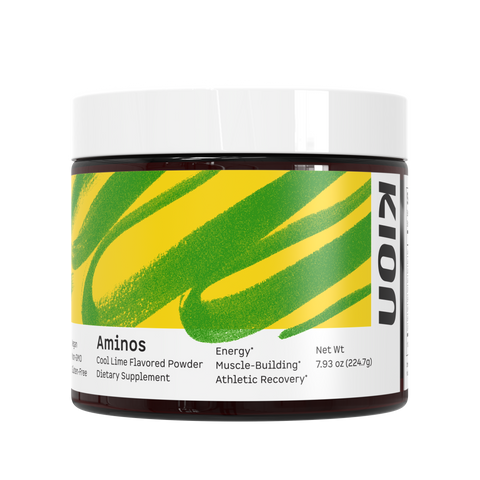
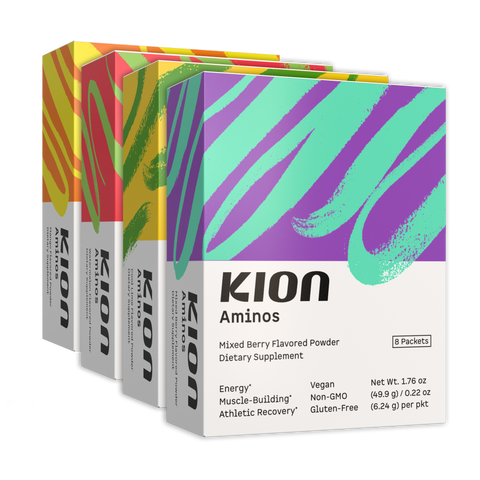
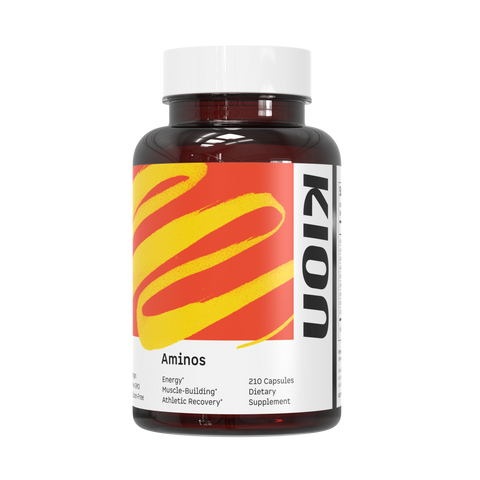
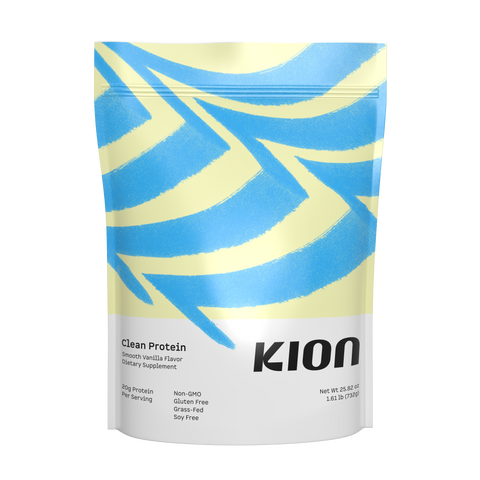
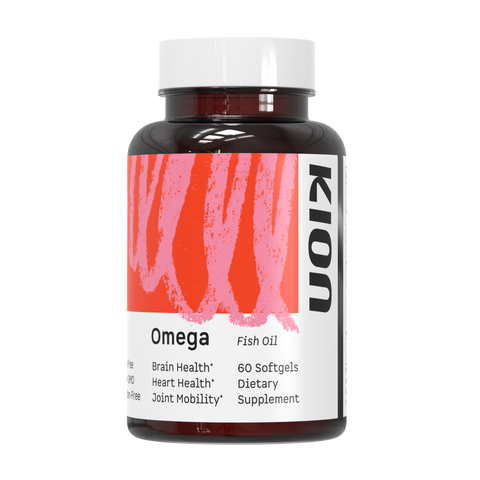
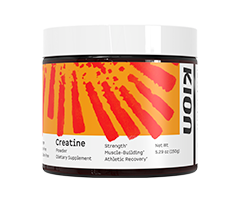

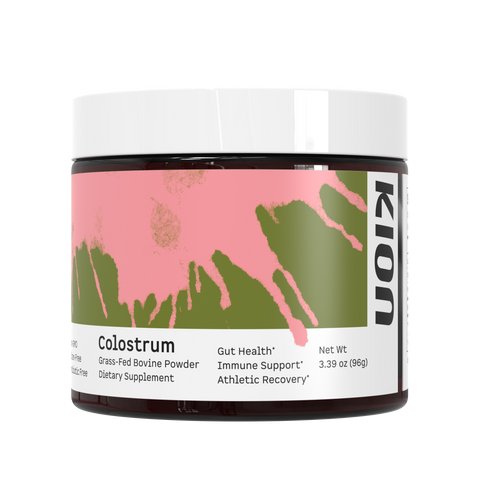




Comments
As usual, Ben Greenfield has produced a definitive article on fasting and what breaks a fast.
This is why I get his Newsletter, listen to his Podcast, and use his Kion products, along with his other recommendations.
JD on
Incredible content as always! I was simply wondering however, if brushing your teeth would break a fast?
The mouth secretes pre-digesting enzymes to break down bread for instance in the mouth. So was wondering if the chemicals or simple “makeup” of the toothpaste would also cause the response and therefore potentially break a fast?
Craig on